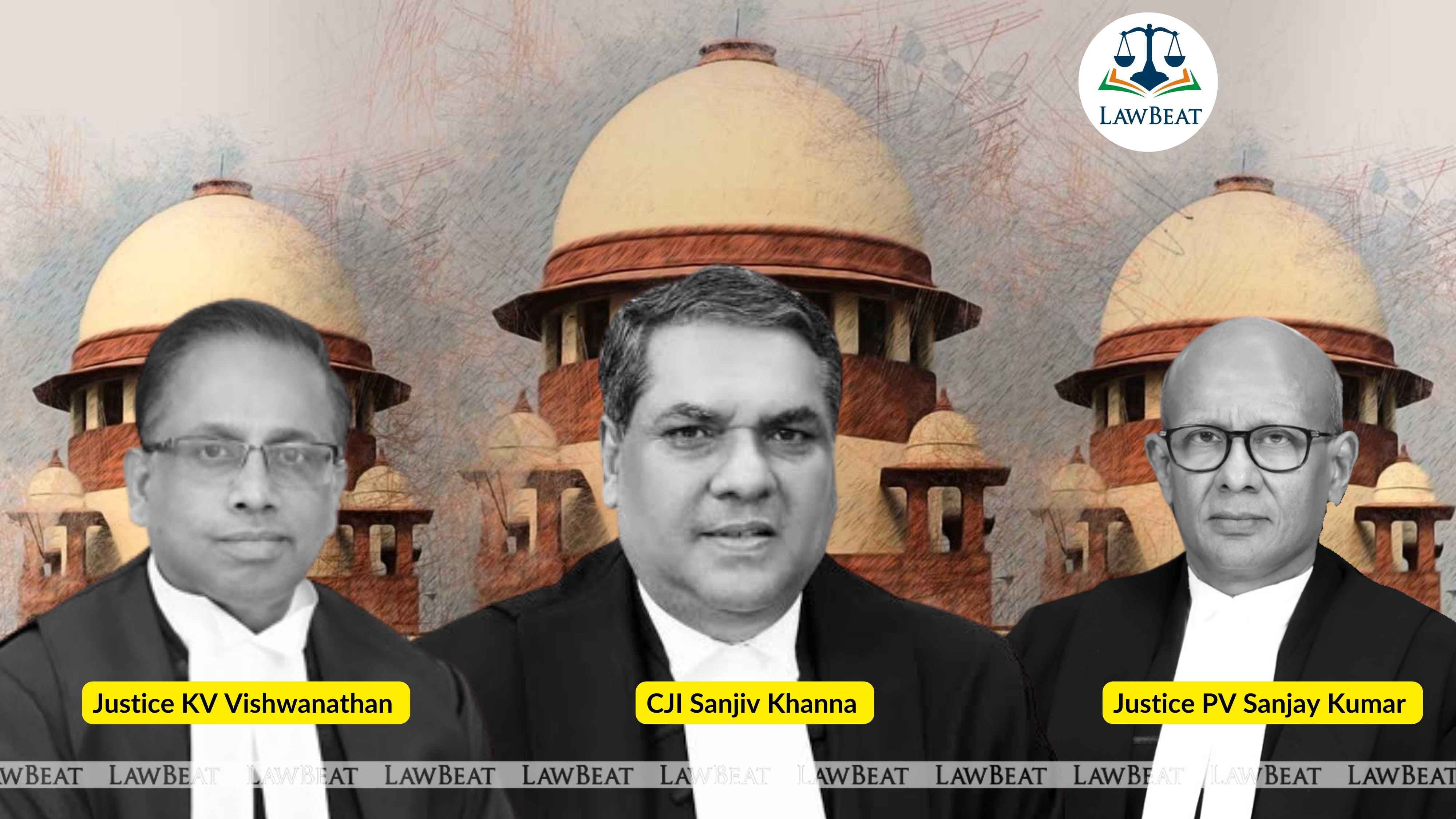SC Directs UP DGP to Form SIT to Probe Girl’s Unnatural Death Amid Interfaith Relationship Suspicion

The court asked whether, considering the undercurrents and the disapproval of the relationship, there was any instigation for the suicide from another quarter
The Supreme Court has directed Uttar Pradesh's DGP (Law and Order) to constitute an SIT, led by a DIG-rank officer, to investigate the unnatural death of a girl. Her death occurred shortly after her family assaulted a boy from another religion over their relationship, leading to his death.
A bench of Chief Justice of India Sanjiv Khanna, Justices Sanjay Kumar and K V Vishwanathan granted the police liberty to re-register the FIR, if required, while quashing criminal proceedings against Ayyub and others arising out of a charge sheet filed against them for the offence of abetment to suicide on a complaint by the girl's family members.
According to the FIR lodged with Rampur Maniharan police station in Saharanpur on November 3, 2022, the appellants came to the house of the girl and told her "Because of you, our boy has died, why do you not die"? Within hours of verbal utterances and scared of insult and humiliation, the girl allegedly ended her life.
This had preceded the incident of assault and death of the appellant's son allegedly by the girl's family members. The girl's family members separately faced trial for culpable homicide not amounting to murder, and a plea by the appellants for enhancing the charge to that of murder was pending.
Dealing with the appellants' plea against the high court's refusal to quash the proceedings related to suicide, the bench said, "The facts of the case are rather unfortunate."
In its judgment on February 7, 2025, the court also noticed several certain disturbing and peculiar features in the case, including that the post-mortem of the body of the deceased girl was also held at 05:00 pm on November 02, 2022. However, the FIR came to be registered only on November 03, 2022, at 17:07 hrs.
"It is intriguing that the police authorities, merely by recording the statements of the complainant and another person who have simply parroted the contents of the FIR, proceeded to file the chargesheet against the appellants. On our repeated queries to the counsel for the State as to whether any investigation to explore any other angle was pursued, we were met only with a stoic silence," the bench said.
The bench posed a number of queries including whether there was anything more sinister; even if it was suicide what was the real cause; was the deceased distraught with what happened to her friend?
Considering the under-currents and the disapproval of the relationship, was there any instigation for the suicide from any other quarter; did the deceased resort to the extreme action of taking away her own life due to the ugly turn of the events and due to the fact that her family members were suspected to be involved? the bench further asked.
"We have no answers today. We are today left with the one-sided version of the complainant," the bench said.
The court therefore opined only an independent, thorough, and comprehensive investigation would bring to light the true story.
"The charge sheet, as it stands, appears to have proceeded in an unidimensional manner by accepting the version of the complainant and his family members as the gospel truth," the bench said.
The court thus held the proceedings could not be allowed to be carried on against the appellants, as an offence under Section 306 IPC could not be said to be made out against the appellants.
"The utterance attributed to the appellants assuming it to be true cannot be said to be of such a nature as to leave the deceased with no other alternative but to put an end to her life. The surrounding circumstances, particularly the prior lodgment of the FIR by the first appellant against the family of the girl for the death of his son Ziaul Rahman, does indicate an element of desperation on the part of the complainant to somehow implicate the appellants," the bench said.
The bench cited Swamy Prahaladdas Vs State of MP and Another, (1995), in which the appellants remarked to the deceased that ‘go and die’ and the deceased thereafter committed suicide. The apex court had then held, "Those words are casual nature which are often employed in the heat of moment between quarrelling people. Nothing serious is expected to follow thereafter. The said act does not reflect the requisite means rea on the assumption that these words would be carried out in all events”.
The bench pointed out by a long line of judgments, the court has reiterated that in order to make out an offence under Section 306 IPC, specific abetment as contemplated by Section 107 IPC on the part of the accused with an intention to bring about the suicide of the person concerned as a result of that abetment is required. It has been further held that the intention of the accused to aid or instigate or to abet the deceased to commit suicide is a must for attracting Section 306 IPC, court noted.
After noting several disturbing features in the instant case, the court ordered reinvestigation into the matter by treating the FIR as one related to unnatural death and filing a report sealed cover in the apex court within two months.
"The reinvestigation on other aspects in the case will be carried out independently. We are not to be taken, to have expressed any view, one way or the other," the bench said, scheduling the matter for consideration of the SIT report and further directions on April 15, 2015.
Case Title: Ayyub & Ors Vs State of Uttar Pradesh & Anr
